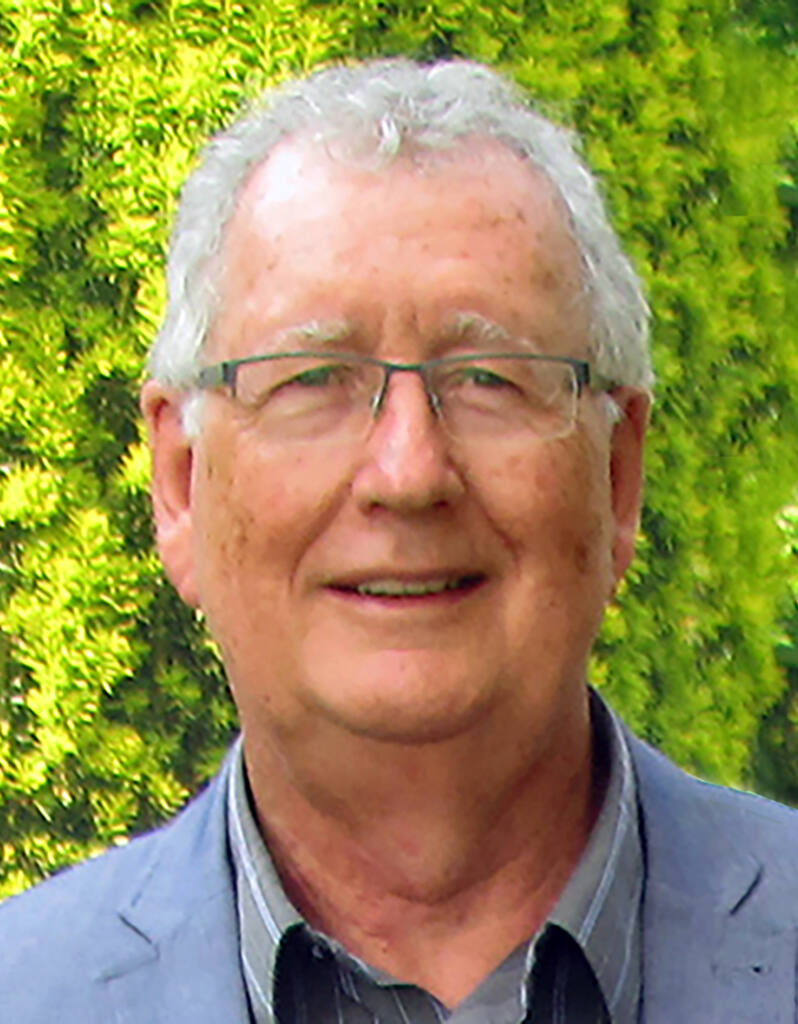WelCom October 2023
The 2023 New Zealand general election will be held on 14 October 2023 to determine the composition of the 54th Parliament of New Zealand. In preparation for the upcoming election Ian Munro, a member of the Archdiocese of Wellington’s Ecology, Justice and Peace (EJP) Commission, encourages us to reflect on which policies can deliver for the common good.

This time, three years ago, I wrote about Pope Francis’ view of politics as ‘a lofty vocation’ and how the world’s politicians were being judged on their management, or mismanagement, of the turmoil of the pandemic.
Three years on, it seems that turmoil hasn’t lessened but grown – a war in Europe with nuclear undertones, unrest elsewhere including growing tensions in our own sphere of interest, the global creep of autocracy, ongoing issues with social media, fake news and ‘alternative facts’, and the recent advent of yet another threat, an out-of-control or misuse of artificial intelligence.
If that wasn’t enough, there’s the financial strife brought about by continued supply-line difficulties, inflation, and the increasing number and severity of climatic disasters all contributing to cost of living issues.
In 2020, the pandemic focused our leaders on keeping us safe and limiting the financial impact, which was quite a juggle. In 2023, with many, many more balls in the air to be juggled, the imperatives are much the same – keeping us safe and limiting the financial impact of the turmoil enveloping us.
It brought back to mind something Pope Francis wrote in Evangelli Gaudium that I had noted in 2020: ‘It is the responsibility of the State to safeguard and promote the common good of society.’1
There are so many more factors in play related to the common good than in 2020 and they’re all relevant to the decision to be made on election day.
As campaigning for this election began to ramp up, I felt some uncertainty about what I might want from the next government. There are so many more factors in play related to the common good than in 2020 and they’re all relevant to the decision to be made on election day.
So it seemed a re-read of Evangelli Gaudium was called for and that focused me on financial issues because, without money, no government will be able to adequately fund education, health, law and order, defence, infrastructure of all kinds, housing, climate change mitigation, and welfare safety nets.
The market
For the last 40 years we’ve been exposed to an approach that involves ‘the market’ being assigned a sizeable part of the task of delivering on the common good. Pope Francis has made some hard-hitting comments about this.
‘…some people continue to defend trickle-down theories which assume that economic growth, encouraged by a free market, will inevitably succeed in bringing about greater justice and inclusiveness in the world. This opinion, which has never been confirmed by the facts, expresses a crude and naive trust in the goodness of those wielding economic power and in the sacralised workings of the prevailing economic system. Meanwhile, the excluded are still waiting.’2
The free market is really an artificial construct that only looks after itself and those who manipulate it for their own ends. It follows, therefore, that by itself and because of its very structure it can’t possibly deliver on the common good. Francis refers to this approach as ‘resorting to magic theories’ that don’t resolve issues facing the common good but ‘give rise to new forms of violence threatening the fabric of society’.3
Fundamental to these theories is the rejection of the right of the state to exercise more than a minimal form of control, the ‘small-state’ philosophy. ‘A new tyranny is thus born, invisible and often virtual, which unilaterally and relentlessly imposes its own laws and rules.…The thirst for power and possessions knows no limits. In this system, which tends to devour everything which stands in the way of increased profits, whatever is fragile, like the environment, is defenceless before the interests of a deified market.’4
Money rarely trickles down
As the earnings of the minority who control the market grow exponentially, so social imbalance increases. Recently, Inland Revenue released the results of its survey of the 311 richest New Zealand families. That so few people have accumulated so much wealth, $85 billion in fact effectively taxed at a rate of less than 10 per cent, demonstrates exactly what Pope Francis is saying. The free market is essentially a con job. Money rarely trickles down. Money mostly trickles up. There are those who would argue that, while the personal wealth of a few families does increase enormously, it also allows for businesses to be set up to provide employment and generate income for workers and the government. But that income is actually generated by those employees, the very people who have no opportunity of avoiding being taxed at the full, legal rate, such as care workers earning $27 an hour taxed at 17 per cent.
The free market is essentially a con job. Money rarely trickles down. Money mostly trickles up.
Francis suggests that political leaders should ponder the words of St Saint John Chrysostom. ‘Not to share one’s wealth with the poor is to steal from them and to take away their livelihood. It is not our own goods which we hold, but theirs’.5 Money, Francis adds, must serve, not rule.
When parts of society are left on the fringes, when the poorest people pay effectively much higher tax rates than the wealthiest, such unjustness and inequality is bound to provoke a violent reaction from those excluded no matter how much is spent on law and order and locking people up. ‘Just as goodness tends to spread, the toleration of evil, which is injustice, tends to expand its baneful influence and quietly to undermine any political and social system, no matter how solid it may appear.’6
A fairer system
Earlier this year, I came across a report on an address by Pope Francis to a delegation from Italy’s tax agency that I thought was relevant. In that address he is reported as saying that a fair taxation system affirms that no citizens are better than others based on their social class, but that everyone is entrusted in good faith to be faithful builders of society. He noted that, done well, taxation ‘must favour the redistribution of wealth, looking out for the dignity of the poorest who risk always ending up crushed by the powerful’.7
The fragility of world systems in the face of the pandemic has proven beyond doubt that not everything can be resolved by market freedom or the small-state. It has exposed those who have, globally, bent democracy to their own ends, privatising anything they can with the money going to their pockets and not the common good. In part, the fallout has been cash-strapped social services and the limited resources governments have been left with to manage the pandemic and the post-pandemic world.
The pandemic has also shown that, in addition to recovering a sound political life that is not subject to the dictates of the ‘market’, ‘we must put human dignity back at the centre and on that pillar build the alternative social structures we need’.8
Pope Francis believes that to do this, to make the necessary financial reforms, will require a vigorous change of approach on the part of political leaders. ‘I urge them,’ he says, ‘to face this challenge with determination and an eye to the future…to the return of economics and finance to an ethical approach which favours human beings’.9
I think Michael Winters, of the Catholic University of America’s Institute for Policy Research and Catholic Studies, responding to Evangelli Gaudium puts it quite nicely. ‘This is a pastor’s voice. He’s saying, “If we are serious Christians, we need to be knee-deep in this stuff”.’10
So, it’s now on me, and you, to hear our pastor’s voice and wade into this stuff over the remainder of the campaigning and consider seriously the sort of policies and government that we feel can deliver for the common good after 14 October.
Endnotes
- Pope Francis, Evangelli Gaudium, 240, Rome, 2013.
- Ibid., 54.
- Pope Francis, Fratelli Tutti, 168, Rome, 2020.
- Evangelli Gaudium, 56.
- Ibid., 57.
- Ibid., 59.
- Nicole Winfield, Associated Press, Rome, 1 February 2022.
- Fratelli Tutti, 168.
- Evangelli Gaudium, 58.
- Michael Winters, The Washington Post, Washington DC, 26 November 2013.
This article was first published in ‘Stories of Hope’, July 2023, (Our Lady of Hope Catholic Parish in Titahi Bay and Tawa newsletter) and has been republished in WelCom with permission from the author.

Now retired, Ian Munro spent his working life engaged in secondary and tertiary education as a school counsellor, university liaison officer and NZQA manager. He is also a writer and columnist. For 21 years he wrote a weekly newspaper column on parenting and family matters for the Otago Daily Times and more recently wrote for Marist Messenger. Ian is a member of the EJP Commission Integral Ecology Committee and Tawa’s Our Lady of Hope Parish in Wellington.